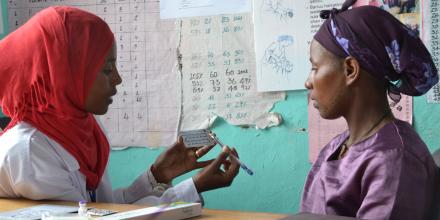Do microcredit and family planning programs have their intended impact on poor households?

Event details
Seminar
Date & time
Venue
Speaker
Contacts
Additional links
In this public lecture, Dr Jaikishan Desai summarised the results of a cluster randomised control trial which sought to measure the impact of exposure to family planning and credit programs in two regions of Ethiopia over a three-year period.
Results show that family planning programs had no effect on contraceptive use, fertility and desired family size. The microcredit programs were successful in increasing engagement in the credit market (increased borrowing) but had no measurable impact on a range of outcomes related to income generation and economic well-being.
Dr Desai is a Senior Lecturer and Director of International Students in the School of Government at Victoria University of Wellington, New Zealand. He has graduate degrees in economics (PhD) and biostatistics (MSc) and teaches undergraduate and post-graduate courses in development policy and policy research methods. His research interests include issues in development, health, and behavioral economics in India, Vietnam, Myanmar, Ethiopia, and New Zealand. Prior to joining Victoria University he worked in international development in more than a dozen countries in Africa, Asia, and the Caribbean and for a variety of organizations including the Government of Mozambique and the World Bank.
This public seminar was presented by the Development Policy Centre at Crawford School of Public Policy, The Australian National University.
Updated: 1 September 2024/Responsible Officer: Crawford Engagement/Page Contact: CAP Web Team











